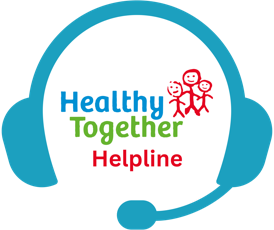If you are considering having a baby soon, the following resources, information and advice will support you in getting ready for pregnancy.
Health before pregnancy: Improving outcomes for mothers and babies
This video was not produced by Health for Under 5s and may contain adverts
Tommy’s Planning for Pregnancy tool
Tommy’s, in partnership with other national agencies, has launched a free digital tool. It aims to help you make sure that you are fit and well when you become pregnant. This will help to give your baby the best start.
Click here to access the Planning for Pregnancy tool.
NHS- Planning your pregnancy
The NHS website offers a range of advice and guidance to support you in planning your pregnancy. Click here to access the information on the NHS website.
There are many changes you can make to your lifestyle to support a healthy pregnancy including:
- Taking folic acid supplements (400 micrograms) every day before you get pregnant and everyday you are pregnant until you are 12 weeks pregnant
- Stop smoking
- Cut out alcohol
- Keep to a healthy weight
- Make an appointment with your GP if you have a pre-existing medical condition such as diabetes or epilepsy
Click here for more information on your lifestyle and wellbeing during pregnancy.
East Midlands Maternal Medicine Network
It can be helpful to find out more about pregnancy before becoming pregnant, and the pre-conceptual counselling available to you. It is sensible for all women to plan their pregnancy and take advice from their GP as to what the risks to them might be. This is even more important if you have a pre-existing medical condition.
These are some of the conditions (but not the only conditions) that will benefit from pre-conceptual advice:
- epilepsy
- diabetes
- heart disease
- raised blood pressure
- kidney disease
- diabetes
- genetic conditions
- severe lung disease
- auto-immune diseases
It is important that you understand how your condition may affect your pregnancy and the health of you and your baby. There are only a very few conditions where you will be advised not to become pregnant. You can be supported, whatever your medical condition, to offer the best result for you and your baby.
Most women or birthing people with a health condition can have a healthy pregnancy. The Ready for Pregnancy campaign delivers key advice around helping to prepare for pregnancy if you have a health condition. Click here to find out more about the Ready for Pregnancy campaign.
Your GP will be able to give you advice or refer you to a specialist nurse or consultant, or to the maternal medicine clinic at your local hospital. There you will get advice from the maternity team and the obstetric doctor. Obstetric doctors are specialist doctors. They work alongside other members of the maternity team to help care for women with complex medical conditions. They are trained to manage medical conditions in pregnancy and coordinate care when support and care from other specialists is needed.
They will check your condition and your overall health in general. They will discuss issues relevant to you. In general, pregnancies go better when health conditions are controlled before you get pregnant.
Your medication will need to be reviewed:
- Is this the best medicine to be taking when planning a pregnancy?
- Sometimes medication needs to be changed three months before you conceive
- Do you need to start 5mg of folic acid rather than the lower dose of 400 microgrammes? A doctor needs to prescribe this because it can affect other medicines
- Do you need to have baseline levels of medicines taken before you become pregnant as pregnancy may have an effect on medicine levels in your blood?
- It is important that you do not stop your current medication without talking to a doctor or specialist nurse. Most medication is relatively safe to take in pregnancy
Everyone can benefit from pre-conceptual advice but this is very important if you take:
- anti-epileptic medication
- blood thinning medication
- certain DMARDs (disease modifying anti-rheumatic drugs)
You also need to think about the early effects of pregnancy. Some people experience sickness, especially in the early months of pregnancy and may struggle to swallow and keep their medication down. This is very important for conditions such as epilepsy where regular medication is important to reduce the risk of seizures. It is helpful to make a plan before you get pregnant so you know how to get help quickly should you need it.
You can find more information related to pregnancy and a wide range of conditions by clicking the links below:
- Arthritis Foundation: Rheumatoid Arthritis and Pregnancy
- Epilepsy Action: Planning a baby
- British Heart Foundation: Pregnancy and your heart: why it’s important to plan ahead
- Kidney Care UK: Pregnancy and chronic kidney disease
- Royal College of Obstetricians and Gynaecologists: Beta thalassaemia and pregnancy
Diabetes
If you have type 1 or type 2 diabetes and are thinking of having a baby, contact your local diabetes team and ask for referral to the pre-conception clinic.
With pre-existing diabetes, a higher dose of folic acid is recommended to take for at least 3 months before conception. Ask your GP to prescribe 5mg of folic acid.
If you are on medication for cholesterol or high blood pressure, please contact your GP or diabetes team as these may need to be changed before becoming pregnant.
It is important to try and keep your blood sugar levels within a healthy range before pregnancy. Ideally HbA1C to be 48 mmol/mol or below. Contact your diabetes team to support you with this.
High blood pressure
If you are on blood pressure medication, and are thinking about becoming pregnant, please see your GP first to discuss your care. It may be that we will need to alter your medication tablets to those that are more suitable for your pregnancy.






